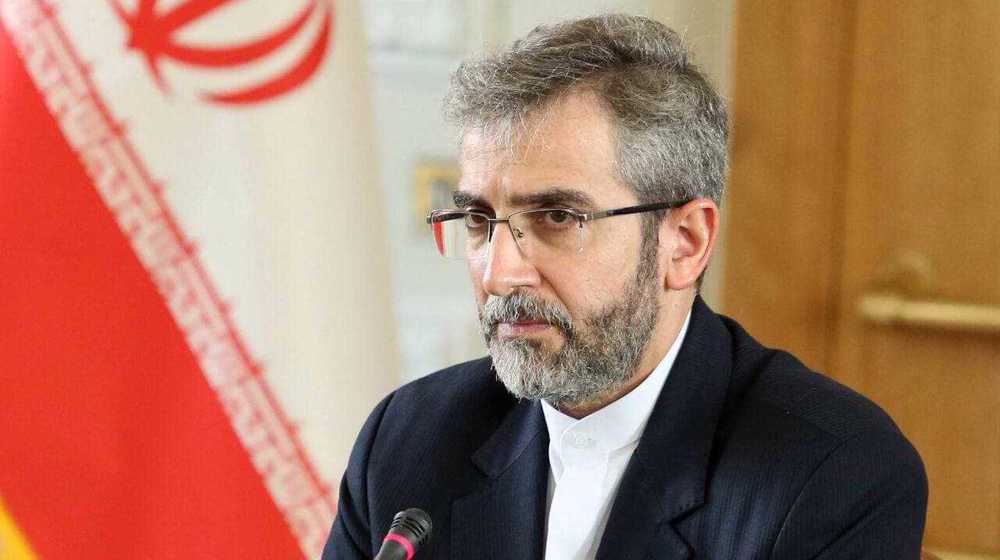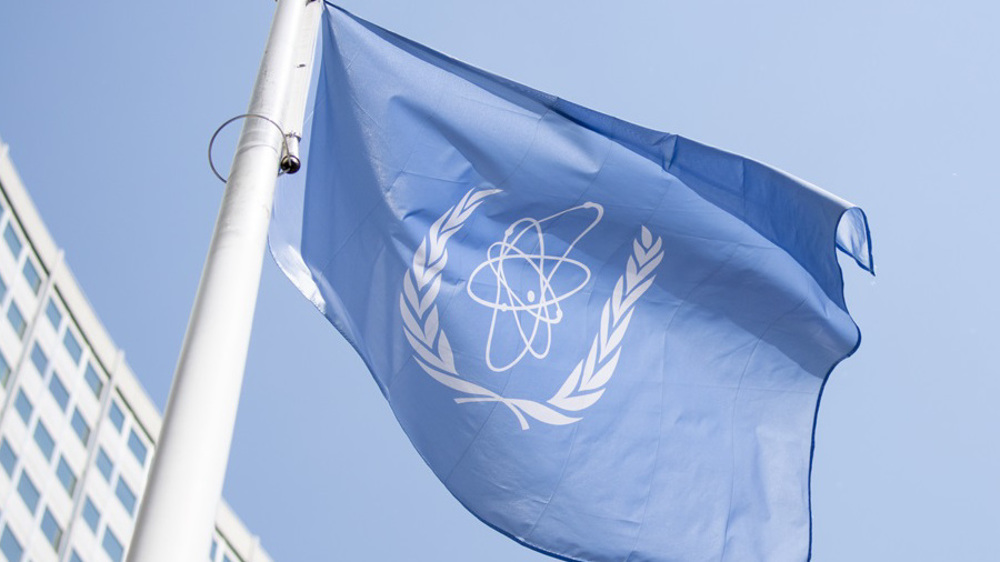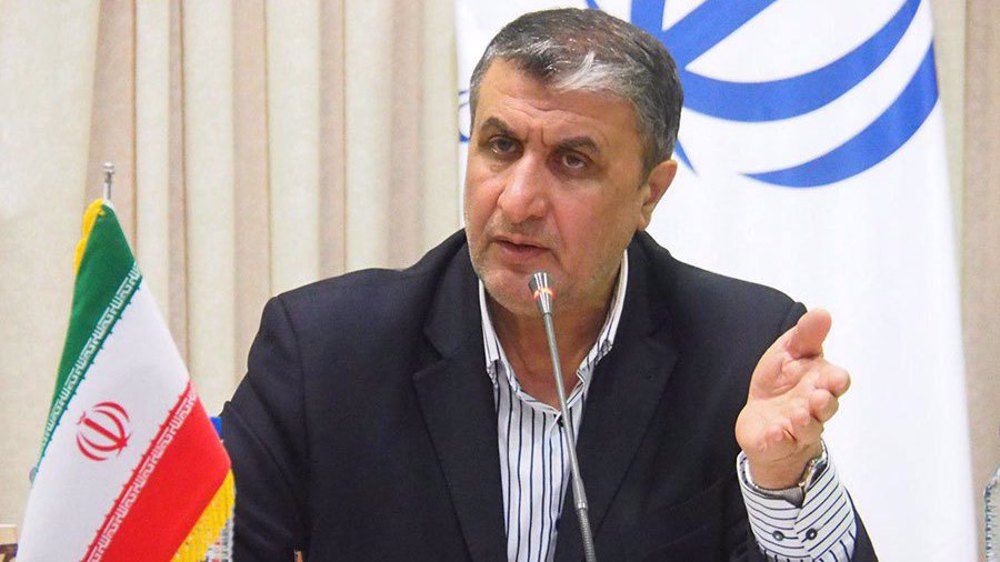Deputy FM: Iran will not allow Zionists to promote, legitimize their Iranophobic agenda
Iran's Deputy Foreign Minister Ali Bagheri Kani says the Islamic Republic will not allow the Israeli regime to promulgate anti-Tehran ideologies and accord legitimacy to its Iranophobia campaign.
Bagheri Kani made the remarks in a meeting of the Academic Association of Islamic Iran at the University of Tehran in the capital on Thursday, during which the senior diplomat expounded on the strategic features of the country’s foreign policy apparatus in the current Iranian administration.
The Iranian deputy foreign minister for political affairs also echoed the same comments in a thread of posts on his Twitter page.
“The enemies of the Iranian nation should know that the Iran, which was able to defeat the ‘US’ maximum pressure campaign’ and force the White House leaders to admit this disgraceful failure, will not allow the Zionists to promote Iranophobia through a ‘maximum blackmail game’ and legitimize their anti-Iran sentiments,” Bagheri Kani said.
The same Iran which managed to defeat the U.S. “maximum pressure campaign”, will not allow the Zionists to legitimize Iranophobia and anti-Iran campaign by spearheading the “maximum blackmail game”. https://t.co/wb5nkx1hum
— علی باقریکنی (@Bagheri_Kani) June 16, 2022
During the meeting, the senior diplomat also stressed that among the strategic features of the foreign policy apparatus in the current Iranian administration is to avoid "spending its foreign policy treasures" for the success of diplomacy.
We shan’t spend foreign policy treasures for the success of diplomacy; instead, we will sacrifice ourselves to achieve foreign policy objectives. https://t.co/Jqx24fhR1g
— علی باقریکنی (@Bagheri_Kani) June 16, 2022
“In other words, in order to show we are successful in the field of diplomacy, we are not willing to compromise on the principles and foundations of the [Iranian] foreign policy and the red lines of the [Islamic] establishment,” he added.
The damage caused by "a lack of awareness in foreign policy" is no less than that of "paying lip service in foreign policy". https://t.co/nuQOMl6OB3
— علی باقریکنی (@Bagheri_Kani) June 16, 2022
In Iran’s foreign policy apparatus, Bagheri Kani explained, having close ties with other countries does not hinge on whether they are Eastern or Western nations, but on their capability to help Iran meet the country’s national interests and security as well as welfare of its people.
The “strategic intelligence”, “decision-making courage” and “power of action” vested in the Islamic Republic of Iran in the field of foreign policy showcase the successful model of Iranian diplomacy. https://t.co/Kh90uLA0ee
— علی باقریکنی (@Bagheri_Kani) June 16, 2022
Negotiations have been held in the Austrian capital of Vienna since April last year to restore the 2015 Iran deal, officially called the Joint Comprehensive Plan of Action (JCPOA), which was ditched by former US President Donald Trump in May 2018.
In quitting the agreement, Trump introduced what he called the “maximum pressure” campaign to bring Iran to its knees. Tehran maintains that the policy has failed dismally. The Joe Biden administration agrees, yet it has not taken any tangible steps to deliver on its promise of repealing the policy.
In recent months, Iran has cited Washington’s indecisiveness as the reason behind the protraction of the talks, as a number of key issues remain unresolved, ranging from the removal of all post-JCPOA sanctions to the provision of guarantees by the American side that it will not leave the deal again.
Last Wednesday, the Board of Governors of the International Atomic Energy Agency (IAEA) adopted a resolution proposed by the United States and the three European parties to the 2015 Iran deal – Britain, France, and Germany – which accused Iran of not cooperating with the UN nuclear watchdog.
The trigger for the resolution was a report issued by the IAEA after its Director General Rafael Grossi made a controversial visit to Israel and met the regime’s authorities late last month.
The agency has been on the receiving end of documents supplied by Israel about Iran’s nuclear program, which Tehran has rejected as fake and fabricated provided by members of the anti-Iran terrorist Mujahedin-e-Khalq Organization (MKO).
Iran: US airstrikes on Yemen war crimes, violation of international law
Yemeni armed forces down F-18 fighter jet, repel US-UK attack: Spokesman
Iran warns against US-Israeli plot to weaken Muslims, dominate region
VIDEO | Public uproar in US against Israeli regime
‘Ghost town’: 70% of Jabalia buildings destroyed by Israel
Mother’s Day: Sareh Javanmardi’s inspiring journey as Paralympic champion and mother
Russia downs over 40 Ukrainian drones as Putin vows 'destruction' on Kiev
VIDEO | Yemen: A bone in Israeli neck












 This makes it easy to access the Press TV website
This makes it easy to access the Press TV website